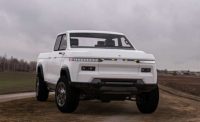Senior Editor Austin Weber profiles an automotive reseach facility located on Clemson University's campus in his monthly column On Campus.
In less than a decade, Clemson University’s International Center for Automotive Research (CU-ICAR) has become a driving force in motor vehicle research and development. The world-class facility is strategically located in Greenville, SC, between Atlanta and Charlotte, NC, along the I-85 corridor.
“CU-ICAR is a 250-acre advanced-technology research campus where university, industry and government organizations collaborate,” says Suzanne Dickerson, director of international business development and marketing at CU-ICAR. “We offer master’s and PhD programs in automotive engineering. [We also] conduct leading-edge applied research in critical areas, such as advanced product development strategies, sustainable mobility, intelligent manufacturing systems and advanced materials.”
Dickerson claims that CU-ICAR is the only research campus in North America focused solely on the automobile industry. “Automotive companies co-locate with us here on the campus and take advantage of close proximity to our infrastructure, faculty and students to add value to their organizations,” she explains. Clemson recently opened a Center for Emerging Technologies at the heart of the CU-ICAR campus. The 60,000-square-foot facility is already home to several companies, such as Sage Automotive Interiors, a spinoff firm that focuses on automotive fabric.
According to Dickerson, “CU-ICAR is an automotive ecosystem that helps companies make connections and build relationships.” Since it opened in 2004, the campus has garnered 19 corporate partners and 30 research partners, such as BMW, FEV Systems and Michelin, across 760,000 square feet.
“We work closely with automotive manufacturing companies to solve their short- and long-term problems and to identify improvements in their processes and products,” says Dickerson. The Carroll A. Campbell Graduate Engineering Center contains more than $10 million in state-of-the-art facilities and equipment, including a Staubli robot and a Zeiss coordinate measuring machine.
“CU-ICAR was established with the objective of providing a new kind of engineer to the automotive industry,” says Dickerson. “[This was] in response to industry’s complaint that the type of engineers they currently hire from U.S. universities do not have a comprehensive understanding of vehicle systems integration.
“Our program teaches automotive engineering with a strong focus on systems integration,” claims Dickerson. “[The center] also creates a more sustainable model for the automotive industry, by focusing on research and development breakthrough technology.”
CU-ICAR’s main R&D focus areas are manufacturing, systems integration, vehicular electronics, alternative propulsion systems, and networked vehicle technology. Topics tackled recently by researchers include manufacture of titanium automotive components; thermal analysis of printed circuit board and sandwich materials; dynamic behavior of electric traction motors with respect to torque variations; efficient, low-noise power inverters; and efficient capacitor charging.
One of the best examples of the type of innovation that takes place on Clemson’s automotive campus is a vehicle prototype program called Deep Orange. “[It’s] a framework that immerses graduate automotive engineering students into the world of a future OEM or supplier,” says Dickerson. “Working collaboratively, students, multidisciplinary faculty and participating industry partners focus on producing a new vehicle prototype each year.
“[They] incorporate breakthrough product innovations and new processes,” adds Dickerson. “[That provides] students with hands-on experience in vehicle design, engineering, prototyping and production from the time they enter into the academic program until graduation.”
CU-ICAR also hosts numerous conferences throughout the year that bring together academia and the real world. Recent events included the Automotive Transatlantic Summit and the International Conference on Sustainable Automotive Technology.
To learn more about CU-ICAR, call 864-283-7100 or visit their website.




